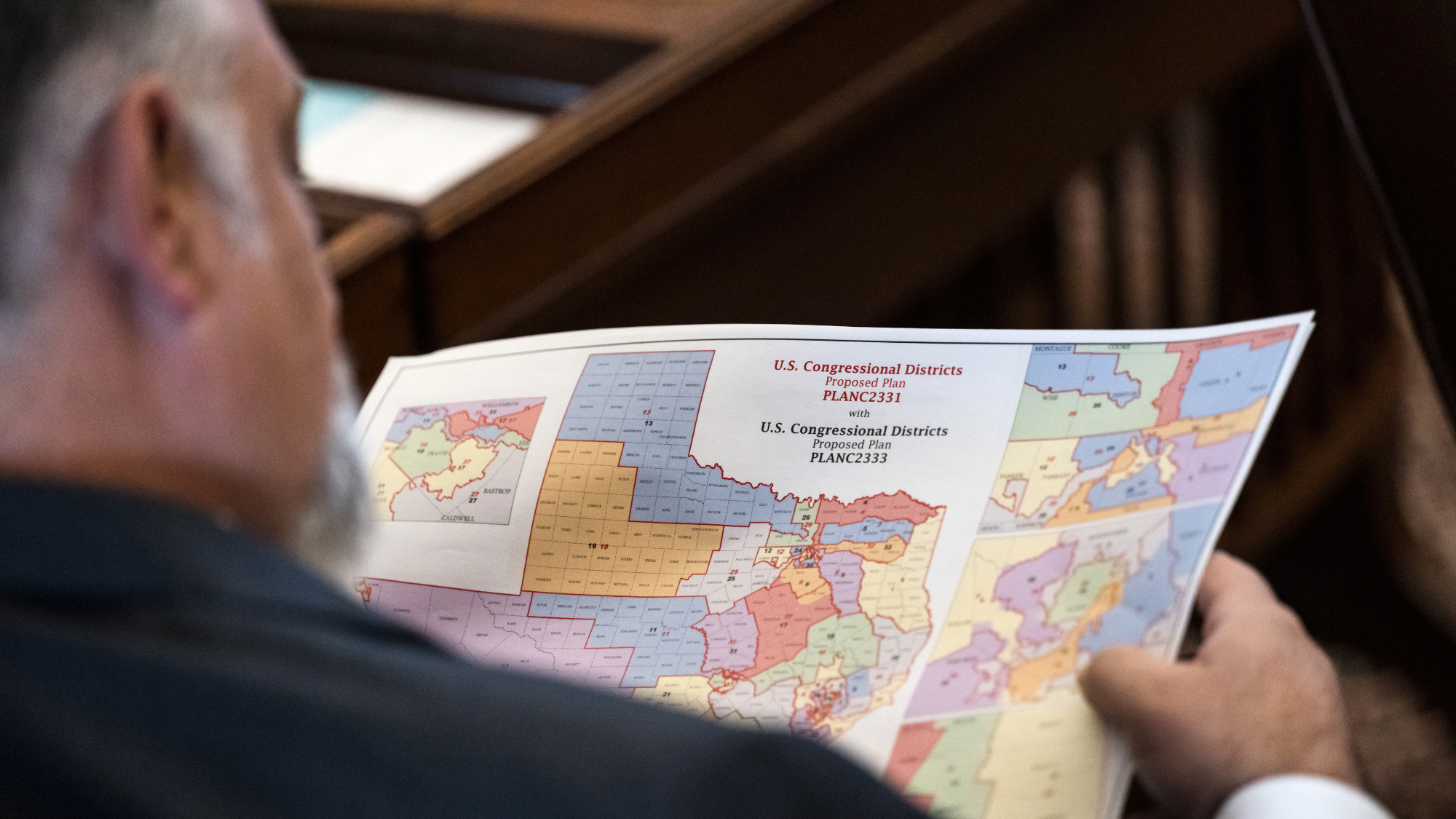The suspicious firing of a Google critic
What happens when a think thank scholar criticizes one of the foundation's biggest donors?

The smartest insight and analysis, from all perspectives, rounded up from around the web:
There's apparently a steep price for upsetting Google, said Kenneth Vogel at The New York Times. The New America Foundation, an influential center-left think tank in Washington, D.C., recently pushed out one of its most high-profile scholars shortly after he critiqued the technology giant, which is one of the foundation's biggest donors. Barry Lynn was the leader of New America's Open Markets initiative, and for years he "has led a growing chorus of liberal criticism" of the monopolistic practices of tech giants like Google, Amazon, and Facebook. In late June, Google chairman Eric Schmidt reached out to the foundation's head to say he was displeased that Lynn had publicly lauded European antitrust regulators for fining Google a record $2.7 billion. A few days later, New America, which has received some $21 million from Google and Schmidt since 1999, told Lynn that it would be cutting ties with the Open Markets team. It has since fervently denied that pressure from Google had anything to do with the decision.
This episode is "a rare glimpse at how Google wields its power behind the scenes," said Nitasha Tiku at Wired. The company works hard to influence the conversation in Washington: In the second quarter of this year alone, it spent $5.4 million lobbying the federal government — more than twice what Apple spent. In fact, Google now spends more on lobbying than any other corporation. Google also funds "a lengthy roster of think tanks, academics, and nonprofits" working on issues important to its businesses — including privacy, net neutrality, and of course, antitrust law. Google denies that it directly pressured New America, but let's be honest, all those millions in donations means that it doesn't have to "muzzle critics with ultimatums." The "soft power of Google's displeasure" is enough to do the trick. If Google "were Monsanto or General Motors or Pfizer, most people probably wouldn't even feign surprise," said Alexis Madrigal at The Atlantic. But because Google was supposed to be special — the harbinger of the future — it's always had something of a "special halo." Turns out its money is "green, too, and it exerts the same power as anyone else's."
The Week
Escape your echo chamber. Get the facts behind the news, plus analysis from multiple perspectives.

Sign up for The Week's Free Newsletters
From our morning news briefing to a weekly Good News Newsletter, get the best of The Week delivered directly to your inbox.
From our morning news briefing to a weekly Good News Newsletter, get the best of The Week delivered directly to your inbox.
I'm not surprised Google would use its power to crush an unfavorable story — because it happened to me, said Kashmir Hill at Gizmodo. In 2011, I wrote for Forbes about how Google was pushing publishers down in search results for not adding Google Plus buttons to their pages. "Google promptly flipped out" and pressured my bosses to take down the story, strongly implying that it would hurt Forbes' search traffic if they didn't. We unpublished the post, and soon even cached versions of it disappeared. I can't prove that Google scrubbed my story from the web, but "this episode has haunted me for years." Google might want to start treading carefully, lest it find itself increasingly friendless in Washington, said Timothy Lee at Ars Technica. The search giant has alienated conservatives over free speech and diversity issues, and liberals are beginning to fret about how monopolies distort the economy. "The combination of Bernie Sanders–style populism on the left and Donald Trump–style populism on the right could lead to a future where Google faces hostility from policymakers across parties."
A free daily email with the biggest news stories of the day – and the best features from TheWeek.com
-
 Trump tightens restrictions for work visas
Trump tightens restrictions for work visasSpeed Read The length of work permits for asylum seekers and refugees has been shortened from five years to 18 months
-
 Stopping GLP-1s raises complicated questions for pregnancy
Stopping GLP-1s raises complicated questions for pregnancyThe Explainer Stopping the medication could be risky during pregnancy, but there is more to the story to be uncovered
-
 Supreme Court revives Texas GOP gerrymander
Supreme Court revives Texas GOP gerrymanderSpeed Read Texas Republicans can use the congressional map they approved in August at President Donald Trump’s behest
-
 The pros and cons of noncompete agreements
The pros and cons of noncompete agreementsThe Explainer The FTC wants to ban companies from binding their employees with noncompete agreements. Who would this benefit, and who would it hurt?
-
 What experts are saying about the economy's surprise contraction
What experts are saying about the economy's surprise contractionThe Explainer The sharpest opinions on the debate from around the web
-
 The death of cities was greatly exaggerated
The death of cities was greatly exaggeratedThe Explainer Why the pandemic predictions about urban flight were wrong
-
 The housing crisis is here
The housing crisis is hereThe Explainer As the pandemic takes its toll, renters face eviction even as buyers are bidding higher
-
 How to be an ally to marginalized coworkers
How to be an ally to marginalized coworkersThe Explainer Show up for your colleagues by showing that you see them and their struggles
-
 What the stock market knows
What the stock market knowsThe Explainer Publicly traded companies are going to wallop small businesses
-
 Can the government save small businesses?
Can the government save small businesses?The Explainer Many are fighting for a fair share of the coronavirus rescue package
-
 How the oil crash could turn into a much bigger economic shock
How the oil crash could turn into a much bigger economic shockThe Explainer This could be a huge problem for the entire economy